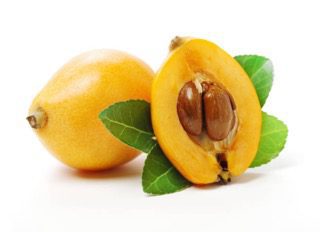

Japanese plums, also known as Chinese plums, are a source of polyphenols and antioxidants that can boost immunity and prevent inflammation. However, it’s important to exercise caution when giving Japanese plums to dogs, as the pits and leaves can be poisonous.
Japanese plums contain antioxidants that can protect against free radicals that cause cancer. Additionally, the fruit’s polyphenols have anti-inflammatory effects that can prevent cardiac inflammation and arthritis. Japanese plums are also rich in fiber, which can support healthy digestion.
The seeds and leaves of Japanese plums contain cyanogenic glucosides, specifically amygdalin and prunasin, that can release hydrogen cyanide when chewed or digested. This can be toxic to dogs, especially when consumed in large amounts.
When giving Japanese plums to dogs, it’s important to remove the skin and pits. Additionally, avoid giving plums that have a bitter taste to dogs.
Japanese plums, also known as Chinese plums, originated in China and are now widely consumed in different parts of the world. These plums are loaded with polyphenols and antioxidants that can boost the immune system and fight inflammation. However, pet owners should be cautious when giving Japanese plums to dogs since the seeds and leaves can be poisonous to them.
Although Japanese plums have several health benefits for dogs, cyanogenic glucosides found in the seeds and leaves can be toxic to dogs. A small amount may not cause any harm, but it is better to avoid giving Japanese plums to dogs altogether.
Japanese plums are affordable and easy to find in many grocery stores. However, to keep your dog safe, it's recommended to find safer alternatives for their diet. Two good alternatives for Japanese plums are blueberries and watermelon.
Pet owners may wonder about the best serving size for dogs. It's important to remove the skin and pits of the Japanese plum before feeding them to dogs. Additionally, avoid giving plums that have a bitter taste to dogs.
Have you given Japanese plums to your dog before? How was your pet's experience? Remember, always make informed decisions about your pet's diet and consult with a veterinarian before introducing any new food.
It's important to keep our furry friends happy and healthy, so let's give them the best!